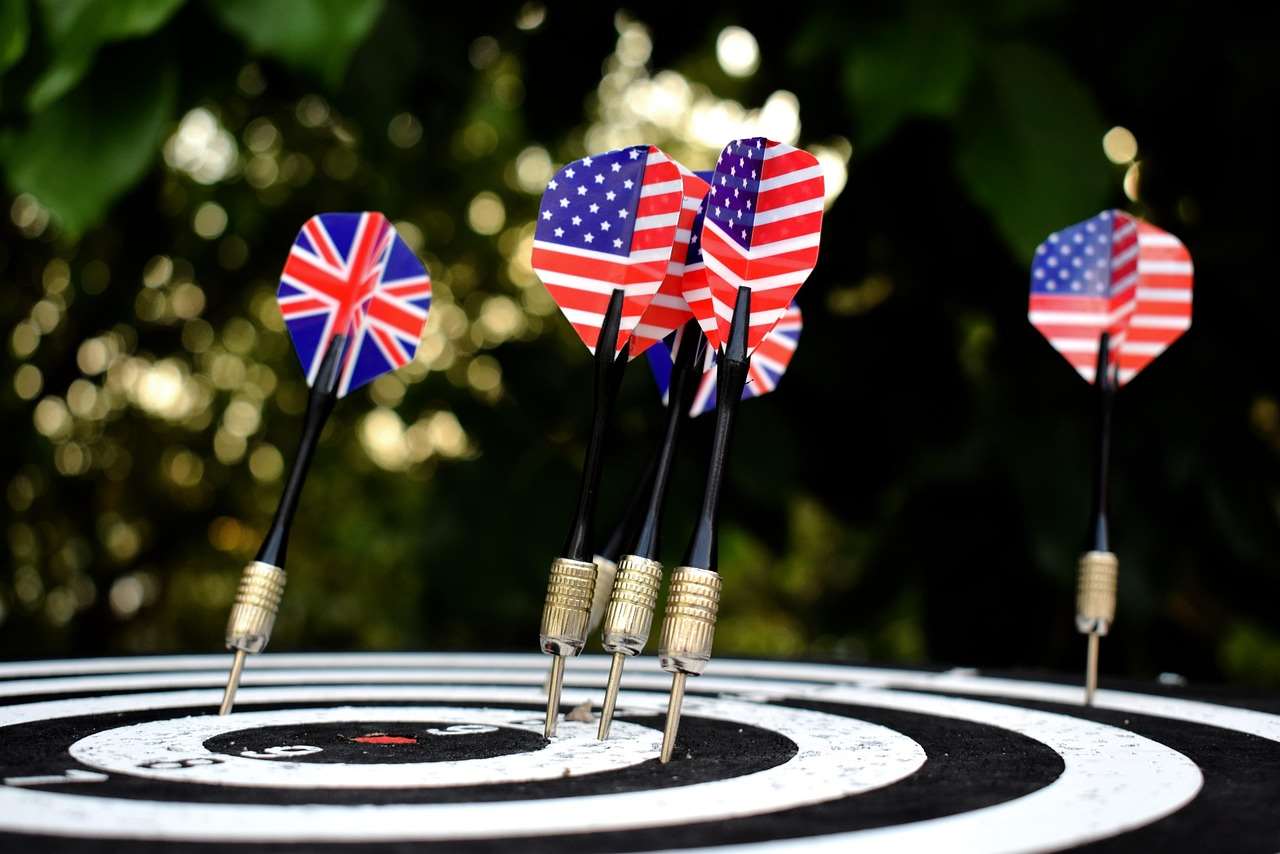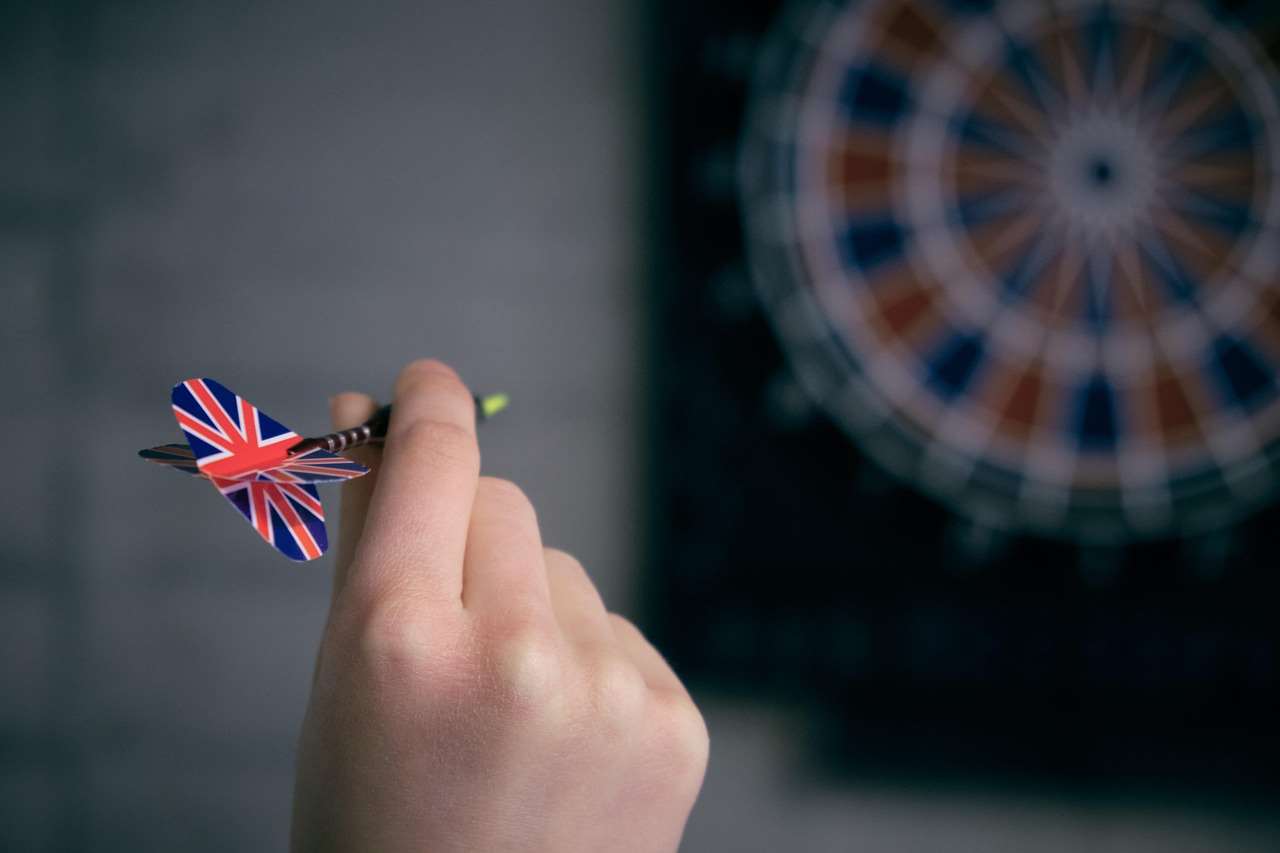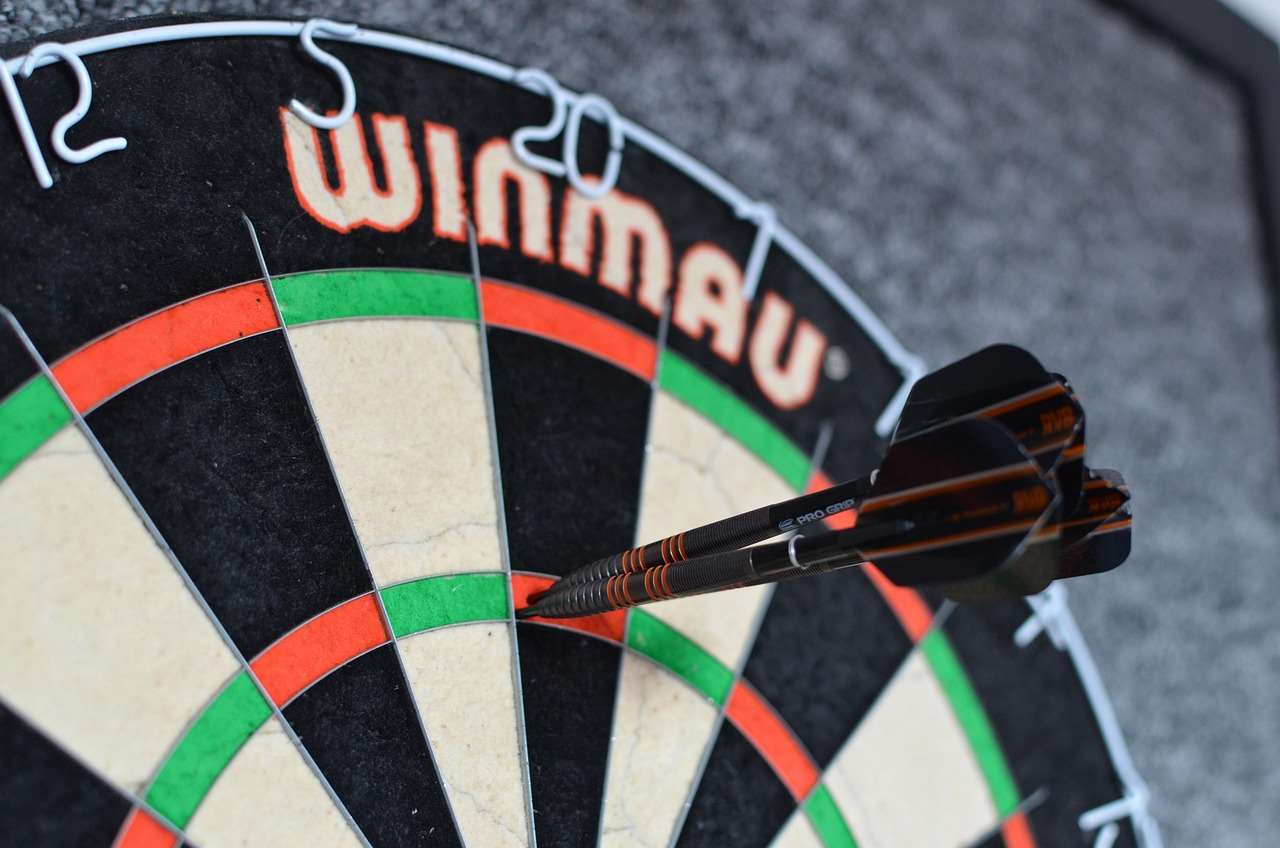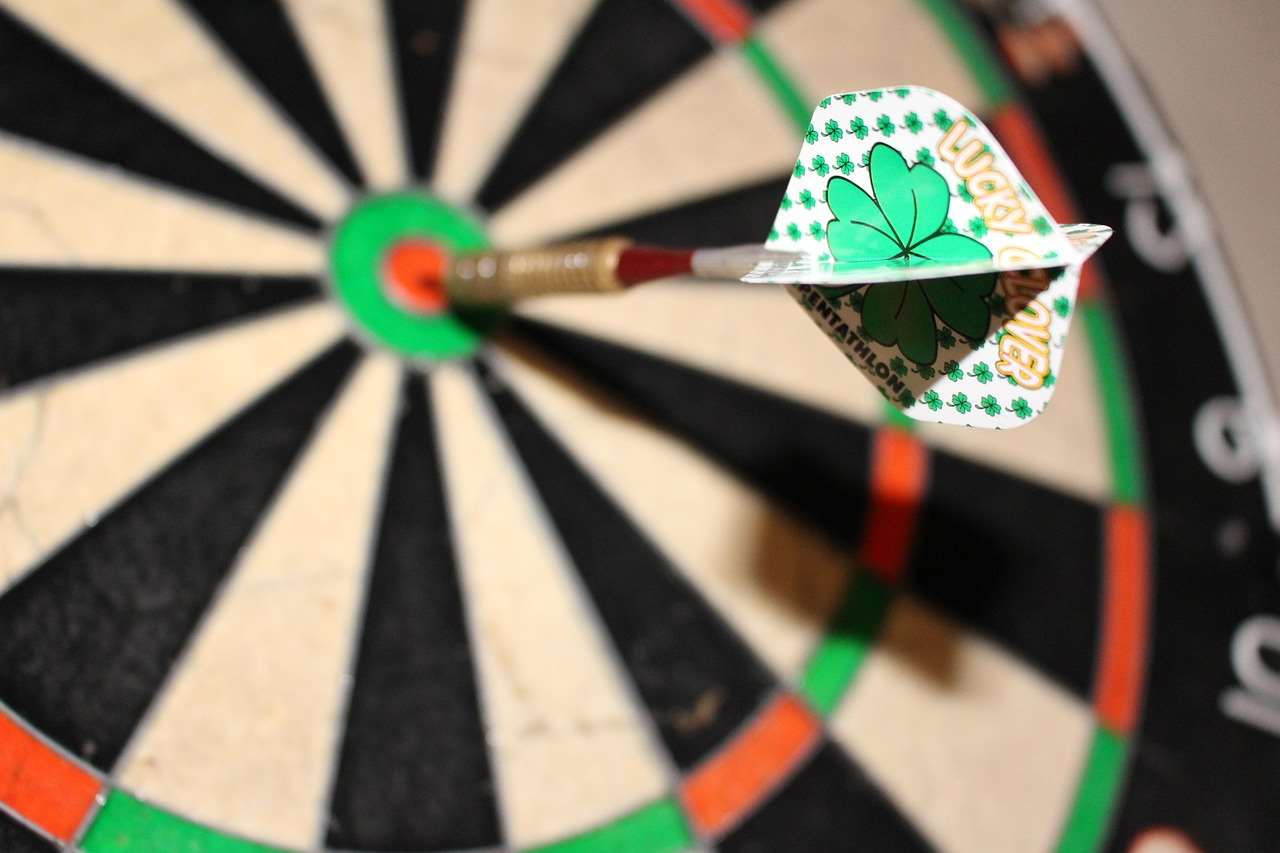The cardinal rule in darts is to let your dart fly unimpeded, meaning understanding the **penalties for touching darts before the throw is complete** is crucial; doing so usually results in that dart scoring zero for that round. This article will delve into the specifics of this rule, exploring its nuances, potential exceptions, and the reasoning behind it, ensuring you’re fully informed on this aspect of dart etiquette and regulations.
⚠️ Still Using Pen & Paper (or a Chalkboard)?! ⚠️
Step into the future! The Dart Counter App handles all the scoring, suggests checkouts, and tracks your stats automatically. It's easier than you think!
Try the Smart Dart Counter App FREE!Ready for an upgrade? Click above!
Understanding Penalties for Touching Darts Before the Throw is Complete
Accidentally touching a dart before your round is officially over can be a frustrating experience, especially when you’re aiming for a high score. Knowing the **penalties for touching darts before the throw is complete** is essential for fair play and avoiding any disputes during a game. The core principle is simple: once a dart is thrown and lands in the dartboard, it must not be touched until all three darts have been thrown (or the leg/game has been won). Violating this rule typically results in a zero score for the touched dart.

Why This Rule Exists
The rationale behind this rule is rooted in maintaining fairness and preventing manipulation. Without it, players could potentially adjust the position of a dart to improve their score, which would clearly violate the spirit of the game. The rule ensures that the outcome of each throw is determined solely by the player’s skill and accuracy, not by any post-throw interference. This principle applies across various forms of the game, including 501 and cricket.
Specific Scenarios and Rule Interpretations
While the general rule is straightforward, some situations require a more nuanced understanding. What happens if a dart falls out of the board? What if another player accidentally bumps the board? Understanding these variations can help prevent confusion and ensure fair application of the rules.
Darts Falling Out of the Board
Generally, if a dart falls out of the board of its own accord *after* it has clearly stuck initially, it is considered a valid throw and scores accordingly. However, if it falls out immediately upon impact, it may be deemed not to have “stuck” and will not score. The specific interpretation can depend on the referee or the agreement among players in a casual game. Always clarify the rules beforehand, particularly when playing in a competitive setting.

Accidental Contact by Another Player
If another player accidentally touches a dart or bumps the board, the situation can become tricky. Ideally, the fairest course of action is to replace the dart as close as possible to its original position. If this isn’t possible, the players should agree on a reasonable estimate of where the dart landed. However, in formal competitions, a referee will typically make the final judgment. Remember to learn about **Basic Darts Fundamentals for Beginners** by clicking here. Open communication and good sportsmanship are crucial in resolving these situations amicably.
The Case of Broken Darts
Sometimes, darts can break upon impact. If the point of the dart remains in the board, it is generally considered a valid throw and scores accordingly. However, if the dart breaks and the point falls out, the same rule regarding darts falling out applies: if it’s deemed to have stuck initially, it scores; otherwise, it doesn’t. Again, clear communication with your fellow players is key.
Penalties in Professional Darts
In professional darts tournaments, the rules are strictly enforced, and the **penalties for touching darts before the throw is complete** are consistently applied. Referees are present to monitor the game and make rulings on any disputes. The penalties are typically a zero score for the affected dart(s).

The Role of the Referee
The referee’s role is to ensure fair play and consistent application of the rules. They have the authority to warn players for any violations and impose penalties as necessary. Players must respect the referee’s decision, even if they disagree with it. Arguing with the referee can result in further penalties.
Appealing a Referee’s Decision
While respecting the referee is paramount, there may be rare occasions where a player believes the referee has made an incorrect ruling. In such cases, there is usually a formal process for appealing the decision. However, this process is often complex and time-sensitive, so it’s essential to understand the specific rules of the tournament beforehand. The rules for adapting darts rules for beginners can be found here.
Tips for Avoiding Penalties
Prevention is always better than cure. Here are some practical tips to help you avoid inadvertently incurring **penalties for touching darts before the throw is complete**:
- Focus on your throw: Maintain concentration throughout your throw to minimize the chance of accidentally reaching for the board prematurely.
- Wait for confirmation: Don’t assume your dart has scored until you’ve visually confirmed it and the referee (if present) has acknowledged it.
- Be mindful of your surroundings: Be aware of other players and spectators around you to avoid accidental contact.
- Establish clear boundaries: In casual games, agree on the rules and boundaries beforehand to prevent misunderstandings.

The Importance of Sportsmanship
While understanding the rules and **penalties for touching darts before the throw is complete** is crucial, equally important is maintaining good sportsmanship. Darts is a game of skill and precision, but it should also be enjoyed in a spirit of fair play and respect for your opponents.
Accepting Rulings with Grace
Even if you disagree with a ruling, it’s important to accept it with grace and avoid arguing or complaining. Remember that everyone makes mistakes, and referees are doing their best to ensure fair play. Maintaining a positive attitude will not only make the game more enjoyable for you but also for your opponents.
Resolving Disputes Amicably
In casual games, disputes are bound to arise from time to time. The key is to resolve them amicably through open communication and compromise. Try to see the situation from your opponent’s perspective and be willing to find a solution that is fair to everyone involved. Remember, the goal is to have fun and enjoy the game. Here you can find information about fun dart game variations with modified rules by clicking here.
Applying the Rules in Different Game Formats
The core principle of not touching darts prematurely applies across different dart game formats, but there might be slight variations in how the rule is interpreted or enforced. For instance, in online darts platforms, the system automatically registers scores, minimizing the opportunity for manual interference. However, the underlying principle remains the same.

Penalties in Online Darts
While physical interference isn’t possible in online darts, the platform’s software enforces scoring rules, ensuring darts are tallied based on their landing positions as registered by the system. Glitches or software errors are rare but can sometimes necessitate restarting the leg or game. This highlights how even digital versions adhere to the core principles of fairness.
Adapting Rules for Friendly Games
While official rules provide a framework, you can always adapt them for friendly games to suit the skill levels and preferences of the players. For instance, you might choose to be more lenient on accidental touches, especially when playing with beginners. Just be sure to communicate any rule modifications clearly before the game begins. Find out how to make darts fairer with handicap rules here.
Conclusion
Understanding the **penalties for touching darts before the throw is complete** is paramount to ensuring fair play and maintaining the integrity of the game. By adhering to these rules and practicing good sportsmanship, you can contribute to a positive and enjoyable darting experience for yourself and others. Remember, clear communication and respect for the rules are key to resolving any disputes that may arise. Now that you understand the rules, grab your darts and start practicing! What are you waiting for? Get out there and start throwing!
Hi, I’m Dieter, and I created Dartcounter (Dartcounterapp.com). My motivation wasn’t being a darts expert – quite the opposite! When I first started playing, I loved the game but found keeping accurate scores and tracking stats difficult and distracting.
I figured I couldn’t be the only one struggling with this. So, I decided to build a solution: an easy-to-use application that everyone, no matter their experience level, could use to manage scoring effortlessly.
My goal for Dartcounter was simple: let the app handle the numbers – the scoring, the averages, the stats, even checkout suggestions – so players could focus purely on their throw and enjoying the game. It began as a way to solve my own beginner’s problem, and I’m thrilled it has grown into a helpful tool for the wider darts community.